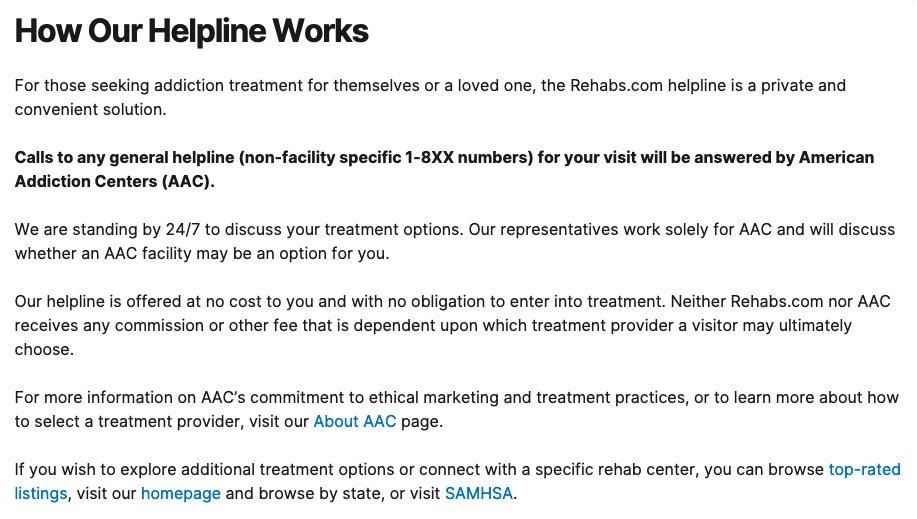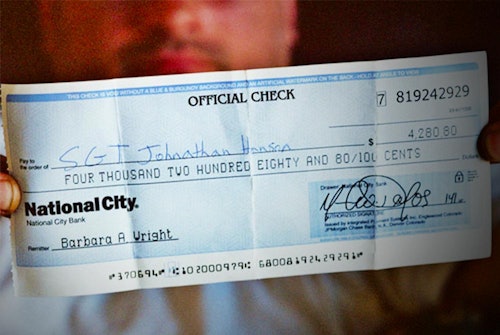- Common Drug Rehab Scams
- Warning Signs of Rehab Scams
- What Makes a Safe Rehab Facility?
- Frequently Asked Questions
Substance abuse and addiction are widespread issues in the United States. People and families reaching out for help for drug addiction need compassion and professional support. Unfortunately, some scammers are taking advantage of the desperation and vulnerability of those struggling with substance abuse by operating fraudulent rehab facilities, running insurance scams, using shady recruitment methods, and other rehab scams.
These scammers care little about the welfare of patients, caring more about their potential financial gain. Read on to learn about the common drug rehab scams, how to avoid them, and what to look for in a genuine treatment program.
Common Drug Rehab Scams
When you’re at your most vulnerable and desperate, it can be challenging to think clearly, making it easier for scammers to take advantage of you with fake addiction programs. Being aware of the most common rehab scams will help protect yourself and your loved ones from being exploited.
Patient Brokering
Patient brokering occurs in two primary forms: lead selling and lead buying.
Lead Selling
Brokers are paid a fee for referring a patient to a specific rehab facility. This could mean that a patient’s particular needs are not taken into consideration. Instead, the patient is sent to a treatment facility that is not right for them, just so the broker can collect their finder’s fee.
Lead Buying
When bidding for new patient referrals, call centers are set up to generate commission based on their number of rehab placements. The people in these call centers are not addiction specialists, but they will pose as caregivers—unbeknownst to the patient—to auction off patients to the highest bidders. The shady practice is unlikely to consider a patient’s unique needs.
Patient Enticement
The process of incentivizing patients to choose or switch rehab facilities, with free accommodation, gifts, money, flights, or other incentives. This unethical practice takes limited account of the patient’s wellbeing.
Listing Theft
The “Suggested Edit Feature” of Google Maps or Google Business listings allows scammers to hijack the listings of legitimate rehab centers by replacing the genuine contact details with their own. When you call what you believe to be a reputable treatment facility, you’re actually speaking to a scammer who tricks you into enrolling in a subpar or fake rehabilitation program.
Misrepresentation of Services
Scammers are not above exaggerating or straight-up lying about the services their rehab facility provides, their accreditation, the qualifications of the staff, the types of addiction they treat, and their facilities.
Patient Privacy Violations
A patient’s health information should, including their diagnosis and treatment plan, should never be discussed in a sales context or shared outside the patient’s care team without the patient’s consent. This is a clear violation of patient privacy protection laws that are in place to safeguard patients' sensitive health information.
Insurance Over-Billing
The more money a scam rehab facility can get out of you, the better. Therefore, over-billing your insurance company is a common practice amongst scammers. This often takes the form of excessive testing and/or over-billing for simple tests.
Insurance Fraud
Scammers sign up unknowing patients to premium insurance plans with excellent coverage that’s only available in states that the patient doesn’t, or has ever, lived in. This allows the rehab scammers to reimburse their “costs” at a higher rate than they’d get from other plans.
Warning Signs of Rehab Scams
Once a rehab scam has you enrolled, they will do anything to keep you so they can continue to bill your insurance. Plus, it’s not unusual for these scams to charge exorbitant fees soon after accepting a patient.
Not only do rehab scams defraud insurance companies and patients of vast sums of money, but they can also put you in very real danger. You’re unlikely to receive any meaningful care or support and may even be pushed into further substance abuse to further exploit you for financial gain.
These predatory scams exploit people and families in their darkest and most desperate moments, so it’s so vital that you can recognize the red flags that indicate a rehab program is not what it seems.
Who Are You Calling?
Some addiction websites can refer you to different rehab centers without you knowing. When calling helpline numbers, always check to see who will be answering the call. If the phone number doesn’t have information on who answers the call, be cautious.
In this example, it’s clear that when you call the helpline number, you’ll be connected to an American Addiction Centers representative and not an unknown or random rehab center.


Limited Online Presence
If the rehab center’s website is little more than a single page with contact details and stock photography, this is a warning sign that the program is not legitimate. You should at least expect the website to feature real photographs of the facility, verifiable staff bios, and testimonials from previous patients.
Insubstantial Details of Treatment Program
When you speak to a rehab center representative, be very wary if they can only provide vague details about the facility, accommodation, treatments offered, and how you’ll be billed. If you can’t get any in-depth information from the representative, walk away.
Reliance on Herbal Remedies and/or Detox
Both herbal remedies and detox can form an essential part of a rehab treatment program, but they can’t be relied on alone. They offer no treatment for the root cause of addiction and cannot provide a replacement for a comprehensive treatment program.
Good rehab centers should offer additional treatment in the form of therapies, counseling, and medical treatment.
Short Treatment Programs
Addiction is something that can take months to treat. So if a rehabilitation program is claiming it can cure addiction in just a week or two, it is likely to be a scam.
Guarantees of Success
Scammers take advantage of your desperation for you or your loved one to get better by guaranteeing a full recovery if you sign up with their rehab program. However, rehab can have no guarantees, as every individual’s road to recovery is different. While promising to do all they can to help a patient is typical for a rehab program, guaranteeing success should ring alarm bells.
Referral Services
Be wary of referral services that claim to match patients with the best rehab facilities for them. Often referral services will only send patients to rehab centers they own, which may be a scam program.
Google Ads in Search Results
Scammers can manipulate the Google Search algorithm to place their rehab scam adverts amongst those from legitimate facilities. Previously, this problem got so bad that Google was forced to temporarily disable ads from numerous rehab centers across the U.S.
What Makes a Safe Rehab Facility?
So, what should you be looking for in a treatment facility, and how do you know if the rehab program you found online is genuine? Here are a few positive indications:
- Long-term residential care with experienced and licensed staff that can investigate the root causes of addiction and take care of the patient’s physical health.
- Individualized care that is personalized to each patient. Your rehab program should be based on your needs. Rehab should never have a one size fits all approach.
- Versatile programs of varying lengths. Some patients are on the road to recovery within 30 days, and for others, it can take 90 days or more for there to be any meaningful progress.
- Continued care with treatment and long-term support that is offered after the patient has been discharged. Look for clinics that offer support groups and regular check-ins after the treatment program is over.
Key Criteria for a Safe Rehab Center
- A dignified environment
- Qualified and certified staff
- Treatment that addresses the whole person: mental, physical, and spiritual
- Comprehensive and personalized screening and assessment
- Proven medical and behavioral treatments
- Family involvement that recognizes their needs and importance too
- Addressed the needs of addiction subgroups
- Monitors patients progress and response to treatment
- Provides continuing care for patients after discharge











Comments